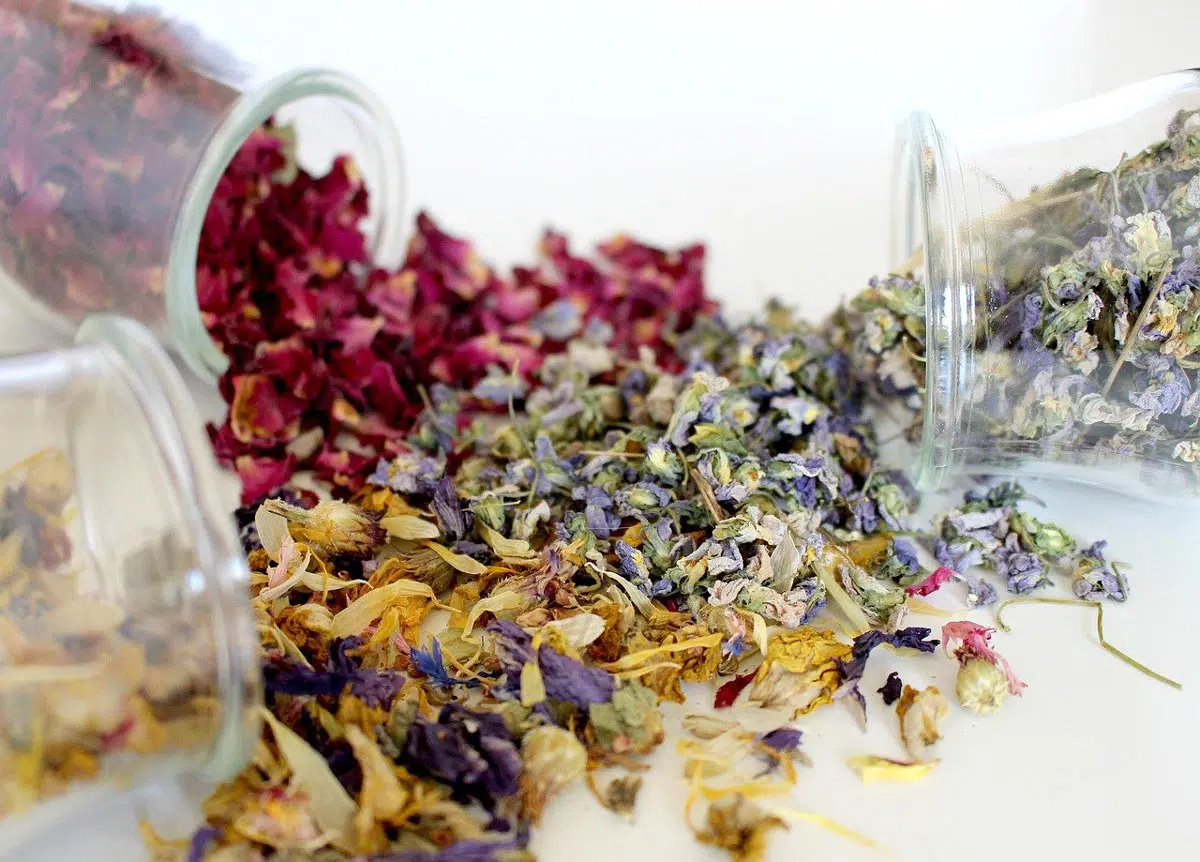
Author: Susan Simmons
In the past, there was a person in the household who was the family “caregiver.” They took care of the simple health problems, by helping the family build the immune system, take care of minor digestive issues, and helped with any simple wounds that would come up. This person either grew their own herbs or went to the closest apothecary to get the items not to be found where they are living.
Today, we go to the corner drugstore and purchase medicines made for us in far off places, and many times cannot even understand what is in them, not knowing who made them, or how safe they are. But many people are going back to the home apothecary, using herbs to help keep their family and themselves in good health.
The medicines of the home are herbal medicines. They are used most effectively for a number of different non-emergency uses, help mitigate the symptoms of cold and flus, minor digestive disorders, and some wound healing. They can also help immensely with prevention of illnesses. They can do this by helping our body ramp up the immune system and fight off the various bacteria and virus that can cause illness. And many of these herbs are easily found, some even in your kitchen cabinet.
Below are some medicinal herbs that are commonly found in a kitchen:
Basil
There are a number of different varieties of basil. What you typically find in your kitchen is sweet basil. Sweet basil is good for your digestive system. It can ease gas and stomach cramps as well as helping to relieve nausea and vomiting. It can also help relieve nervous irritability, fatigue, depression, anxiety, and insomnia. Just the smell of Basil can bring on a smile!
Cinnamon
Cinnamon is considered a warming and stimulating herb. Because of this it is good for the circulatory system. It can boast vitality and stimulate the nervous system. In clinical trials, Cinnamon has been show to help stabilize blood sugar levels.
Fennel
Mostly the seeds are used, in both cooking and in medicinal uses. It is good for digestion, many Indian restaurants serve fennel seeds after a meal, to help support your digestion and any gas. It can sweeten your breath and help you digest fatty foods.
Black Pepper
It is another warming and energizing herb, and we use it every day! It is good for flus, coughs, colds, asthma, and poor circulation, which are all “cold type” problems. Black Pepper warms you up! It also helps in the digestion of fatty foods.
Thyme
Thyme can be an effective and powerful disinfectant which can be used externally and internally. Next time you have a scrape, you can use Thyme as a wash to help fight infection. As a tea, it is good for infectious respiratory tract conditions, which can include bronchitis, coughs, and general lung/chest complaints. As with most herbs, it is rich in antioxidants, which help support your overall body’s good health. The flowers are also a favorite with bees.
Rosemary
Rosemary is considered a nervine, good for both the nervous system and the circulatory system. It is another warming herb. It can be used to help ease headaches and migraines and can even help with mild depression. An herbal balm made with Myrtle, Lavender, and Rosemary can help with rheumatism.
Sources:
Jeannie Harding, “The Herb Book”
Rosemary Gladstar, “Medicinal Herbs, A Beginner’s Guide” Dr. Sharol Marie Tilgner, “Herbal Medicine, From the Heart of the Earth”
